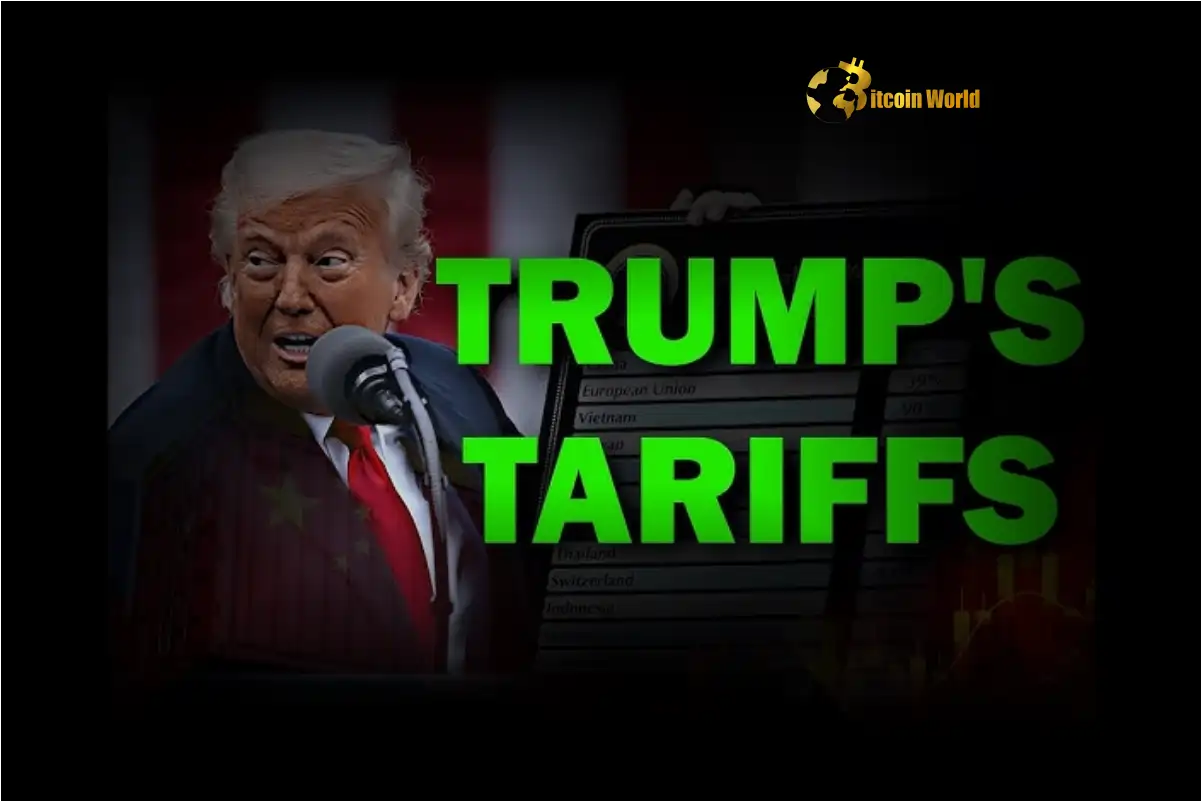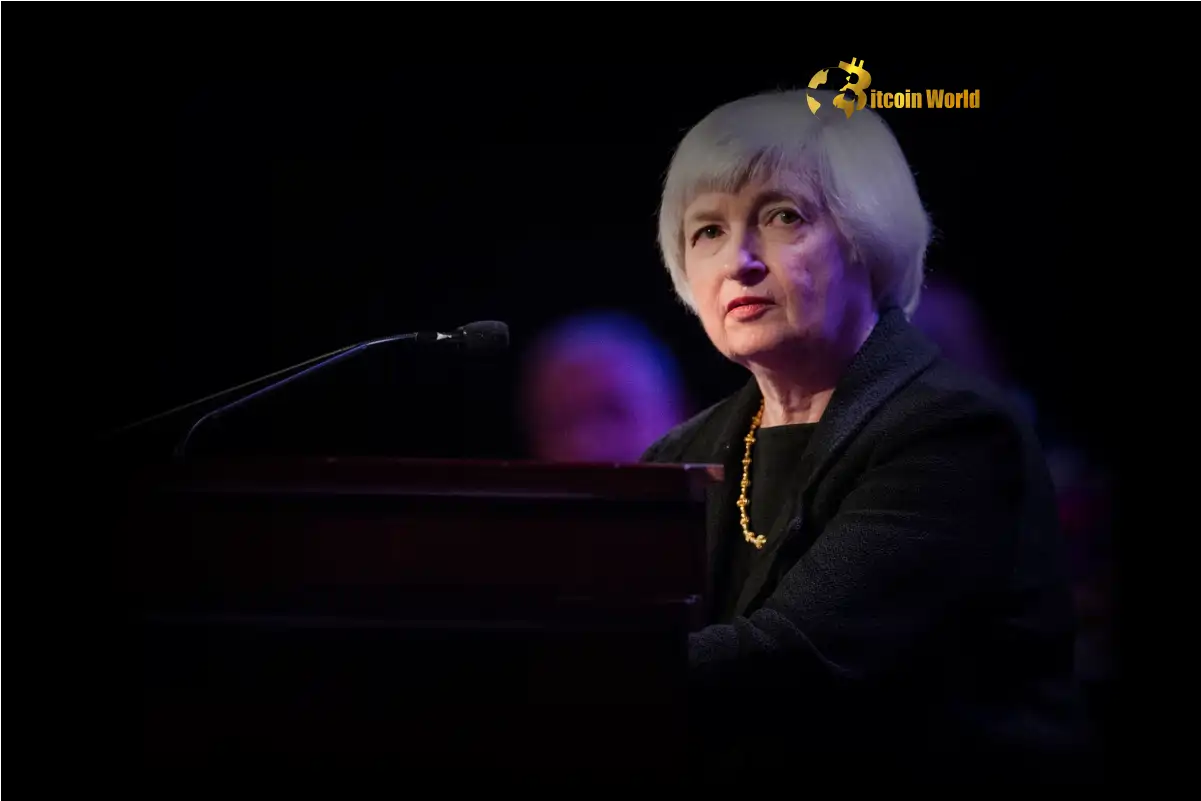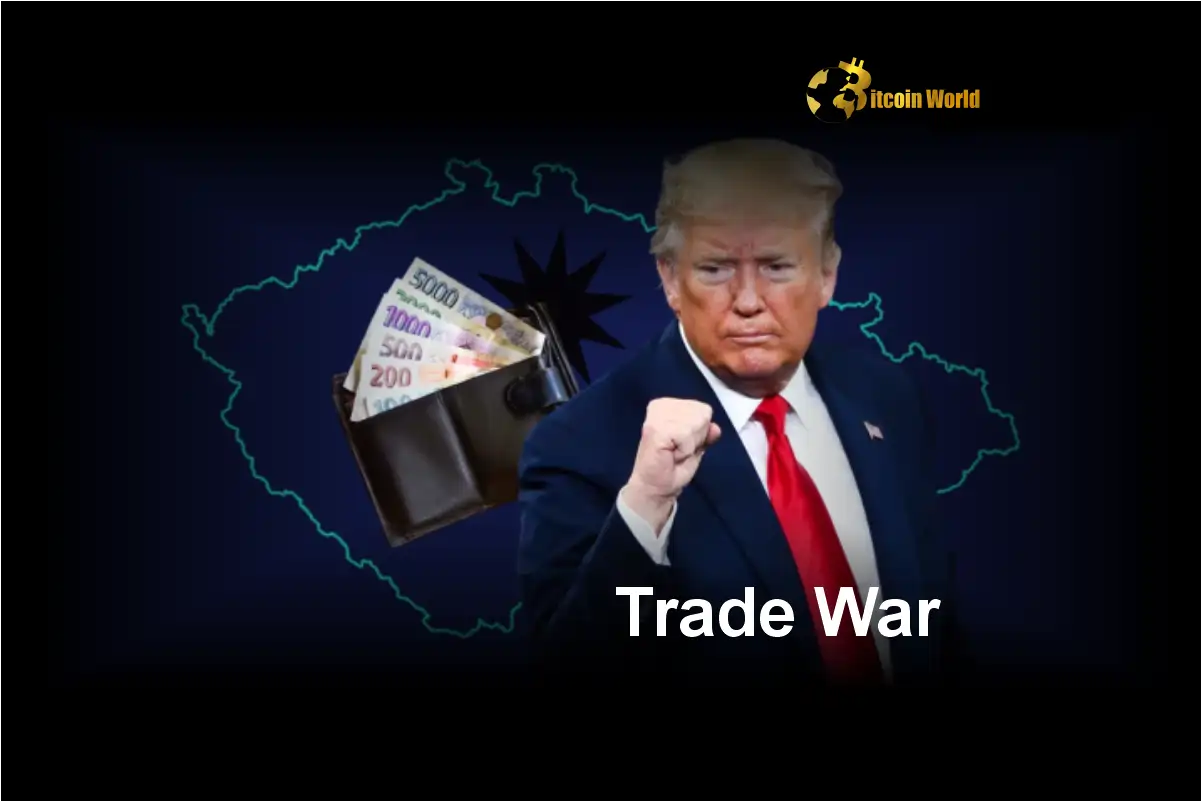Are you watching the escalating global trade tensions and wondering how it will affect your crypto investments? President Trump’s recent tariff announcements have sent ripples across the global economy, and the European Union is preparing to respond. This could be a critical moment for the crypto market, potentially creating both challenges and opportunities. Let’s dive into the EU’s initial plan and understand what it means for you.
EU’s Initial Plan to Counter Trump Tariffs: A Preliminary Roadmap
According to Jinse Finance, the European Commission is set to present its preliminary plan next week as a direct response to the broad import tariffs declared by U.S. President Donald Trump. European Commission spokesperson Olof Gill stated that this initial roadmap is just the first step in a multi-stage process. Here’s a breakdown of what we know so far:
- Initial Roadmap Unveiling: Early next week, the European Commission will publicly release its preliminary plan. This is the first formal step in their response to the U.S. tariffs.
- Consultations to Follow: After the roadmap is presented, the Commission will engage in extensive consultations. These discussions will involve:
- Member States: Seeking input and alignment from all EU member countries.
- Industry Representatives: Gathering feedback from various industries that will be affected by the tariffs and any retaliatory measures.
- Final Measures and Vote: Based on the consultations, the Commission will formulate concrete measures. These final proposals will then be submitted for a vote, likely within the European Parliament and Council of the European Union, to be officially adopted and implemented.
This structured approach indicates the EU’s commitment to a measured and considered response, aiming to protect its economic interests while navigating the complexities of international trade relations.
The Looming Trade War and its Impact on the Global Economy
Trump’s tariff moves are widely seen as potential triggers for a global trade war. But what exactly is a trade war, and why should you, as someone interested in cryptocurrencies, care? In simple terms, a trade war is an economic conflict where countries impose tariffs or other trade barriers on each other’s goods and services in retaliation for similar actions. This tit-for-tat escalation can have significant consequences for the global economy:
| Aspect | Potential Impact of Trade War |
|---|---|
| Supply Chains | Disruptions to global supply chains as businesses struggle with increased costs and trade barriers. This can lead to higher prices for consumers and reduced efficiency for businesses. |
| Economic Growth | Slowed economic growth worldwide due to decreased trade volumes, reduced investment, and increased uncertainty. Businesses may delay investments, and consumers may reduce spending. |
| Inflation | Increased inflation as tariffs raise the cost of imported goods, which can be passed on to consumers. This erodes purchasing power and can lead to economic instability. |
| Market Volatility | Increased volatility in financial markets, including stock markets and potentially the crypto market, as investors react to trade uncertainties and economic risks. |
Historically, trade wars have often led to economic downturns and market instability. The current situation is particularly concerning due to the size and interconnectedness of the U.S. and EU economies. Any significant disruption to their trade relationship could have far-reaching effects.
How Trump Tariffs Could Ripple Through the Crypto Market: Navigating Uncertainty
You might be wondering, how do Trump tariffs and EU responses directly relate to the crypto market? While not immediately obvious, the connections are significant and multifaceted:
- Safe Haven Asset Narrative: In times of economic uncertainty and traditional market volatility fueled by trade wars, cryptocurrencies like Bitcoin are often viewed as safe haven assets. Increased global economic anxiety could drive investors towards crypto, potentially increasing demand and prices.
- Currency Devaluation and Inflation Hedge: Trade wars can lead to currency devaluations and inflation in affected economies. Cryptocurrencies, with their decentralized and limited supply nature, are sometimes considered a hedge against inflation and currency risks. As traditional currencies fluctuate due to trade tensions, crypto might appear more attractive.
- Global Economic Sentiment: Negative global economic sentiment stemming from trade wars can impact all markets, including crypto. While some might see crypto as a safe haven, others might reduce risk exposure across the board, leading to sell-offs in crypto as well. Market sentiment can be unpredictable.
- Regulatory Responses: Governments’ responses to trade wars and economic instability could include new regulations or changes in financial policies that indirectly affect the crypto space. For example, increased capital controls or shifts in monetary policy could influence crypto flows and adoption.
It’s crucial to remember that the crypto market is still relatively young and highly volatile. While trade war scenarios could present opportunities, they also introduce significant uncertainties.
What are the Challenges for EU and Global Trade? Beyond Tariffs
The challenges facing the EU and global trade extend beyond just tariffs. Trump’s tariff moves highlight deeper issues within the international trade system:
- Multilateralism Under Strain: The rise of protectionist policies challenges the principles of multilateralism and rules-based international trade, which have been cornerstones of global economic cooperation for decades. This can undermine institutions like the World Trade Organization (WTO).
- Geopolitical Tensions: Trade disputes are often intertwined with broader geopolitical tensions. Escalating trade conflicts can exacerbate existing political disagreements and create new points of friction between nations.
- Supply Chain Resilience: Businesses are facing pressure to re-evaluate their global supply chains and build more resilience against trade disruptions. This could lead to shifts in manufacturing locations, increased regionalization of trade, and higher costs.
- Consumer Impact: Ultimately, trade wars impact consumers through higher prices, reduced product choices, and potential economic slowdowns. This can erode consumer confidence and purchasing power.
For the EU, the challenge is to formulate a response that effectively protects its economic interests without escalating tensions further. Finding a balanced approach that combines firmness with diplomacy will be key.
Actionable Insights: Navigating the Trade Uncertainty in the Crypto Sphere
So, what can you do as someone involved in the crypto space to navigate this period of trade uncertainty? Here are some actionable insights:
- Stay Informed: Keep a close watch on developments related to the EU’s response and global trade news. Reliable sources like Jinse Finance and major financial news outlets are crucial.
- Diversify Your Portfolio: Diversification is always a good strategy, especially in volatile times. Don’t put all your eggs in one basket. Consider diversifying across different cryptocurrencies and asset classes.
- Manage Risk: Be aware of the increased risk in the market. Consider using risk management tools like stop-loss orders and position sizing to protect your capital.
- Long-Term Perspective: Try to maintain a long-term perspective. Trade wars and economic uncertainties are often cyclical. Focus on the long-term potential of the crypto market rather than short-term fluctuations.
- Educate Yourself: Deepen your understanding of macroeconomics and how global events can impact the crypto market. Knowledge is your best tool in navigating uncertainty.
The unfolding situation with EU tariffs and global trade is complex and dynamic. While it introduces volatility and risks, it also presents potential opportunities for the crypto market. By staying informed, being prepared, and maintaining a balanced perspective, you can navigate these turbulent times effectively.
In conclusion, the EU’s upcoming plan to address Trump’s tariffs is a significant development that could have wide-ranging implications for the global economy and, by extension, the crypto market. While the exact outcomes are uncertain, understanding the potential impacts and taking proactive steps to manage risk and stay informed is crucial for anyone involved in the cryptocurrency space. The urgent need for clarity and a stable global trade environment is more apparent than ever, and the crypto market will undoubtedly be watching closely as events unfold.
To learn more about the latest crypto market trends, explore our article on key developments shaping Bitcoin price action.
[ad_2]
Source link






